The Baker Institute International Symposium
Who Pays The Price?
Resource Extraction and Environmental Inequity
With funding from the Andrew W. Mellon Foundation, the Baker Institute for Peace and Conflict Studies hosts a symposium examining the local and global impacts and legacies of environmental resource extraction.
October 6-7, 2025
Zoom Webinar Link for October 7th International Panel: Click here Passcode: 678088
The Baker Institute for Peace and Conflict Studies is pleased to host its Fourth International Symposium, “Who Pays the Price? Resource Extraction and Environmental Inequity.” Supported in part by Juniata College's Andrew W. Mellon Foundation Grant, this two-day event will bring together international scholars, regional practitioners, and students to explore the local and global impacts of extractive industries.
The symposium will begin with a focus on Appalachian Pennsylvania’s fossil fuel legacies, then expand to examine how mining, drilling, and resource extraction shape conflicts, environmental justice, and community resilience worldwide. Through panels and dialogue, participants will engage pressing questions:
- How do extractive industries deepen environmental inequities?
- What roles do colonial legacies and global trade play?
- How can communities resist harm and promote sustainable practices?
The symposium is free and open to the public, welcoming the Juniata community and international guests to join in this critical conversation.
Symposium Overview
The Baker Institute symposiums aim to engage scholars and practitioners of peace and conflict resolution through dialogue on pressing issues facing the world in the 21st century. Expert panelists will share their perspectives and scholarship with symposium participants. Symposium moderators will facilitate the sharing of knowledge and reflections among panelists and participants. The symposium is open to the Juniata campus community and the broader United States and international community.
Past Symposiums
2022 - The War in Ukraine: Global Perspectives - 6 speakers and 70 participants
2023 - The New Cold War?: Strategic Competition and the Future World Order - 7 speakers
and 304 participants
2024 - Toward Environmental Justice: Transition to a Sustainable Future - 6 speakers
and 450 participants
Symposium International Guests
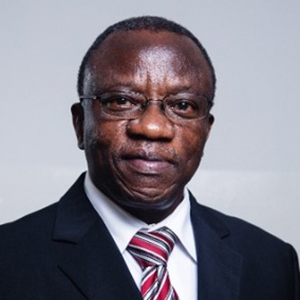
Elias T. Ayuk, Ph.D. Biography →
Ayuk is an Independent Researcher and Consultant with over 30 years of experience in development research across Africa. His expertise includes natural resource management, poverty research, value chain analysis, institutional capacity building, and strategic planning. He served as Senior Strategic Adviser and Sub-Regional Director for Southern Africa at the Sustainable Development Goals Centre for Africa in Kigali (2019–2020) and as Director of the United Nations University Institute for Natural Resources in Africa (UNU-INRA) in Accra (2010–2018), where he led research and policy initiatives on natural resource governance. Elias began his career with the International Fertilizer Development Centre in Togo before joining the World Agroforestry Centre (1992–2002) in Burkina Faso, Mali, and Zimbabwe. He later worked with Canada’s International Development Research Centre in Senegal (2002–2010), including as Acting Executive Director of SISERA. Since 2014, he has been a member of UNEP’s International Resource Panel, co-leading influential reports. He has co-edited six books and published widely on sustainable development and resource governance.
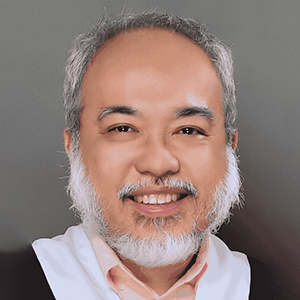
Jaybee Garganera
Garganera is part of the Philippine Task Force on the Binding Treaty (Campaign for a Legally Binding Treaty on TNCs) and the Asia Working Group for a Legally-Binding Instrument (Asia-LBI). His organization is active both in the Global Campaign for a Legally-Binding Treaty and the Treaty Alliance. He is part of the Steering Committees of the Asia-Pacific Gathering on Human Rights and Extractives (AP-Gathering) and the Thematic Social Forum on Mining (TSF-Mining). He also sits in the Advisory Committee of the Defenders in Development (DiD) campaign and the Community Resource Exchange (CRE) of the Coalition on Human Rights and Development (CHRD). He has been an official CSO delegate to various international conferences and gatherings, including UN Conferences on Sustainable Development (UNCSD), UN Forums on Business and Human Rights (UN BHR), Asia-Europe Peoples Forum (AEPF), Annual Meetings of the World Bank and the Asian Development Bank and Publish What You Pay – Extractive Industry Transparency Initiative (PWYP-EITI) global and regional meetings.
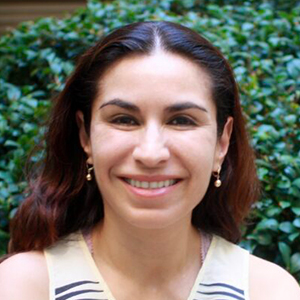
Belén Noroña, Ph.D. Biography →
Noroña is a social scientist and educator working at the intersection of higher education, grassroots research, decolonization, and social justice. Her research focuses on the Amazon region, feminist political ecology, oil and gas industries, indigenous peoples and territories, and the intersections of race and gender violence. Her current work explores female indigenous epistemologies and body-territory cartographies. She co-founded the Pachaysana Foundation in Ecuador. Noroña has held fellowships with the Mellon Foundation (Just Transformation Initiative, 2021–2023; Postdoctoral Fellowship, 2020–2021) and Fulbright-Hays (2017). She currently serves as an Assistant Professor at Penn State University, teaching human geography, development theory, Latin American geography, globalization, and qualitative research methods. Previously, she was a Mellon Postdoctoral Scholar at the University of Oregon, where she researched indigenous knowledge, racism, and gender disparities in contexts of oil extraction and COVID-19 in Latin America. Her work bridges research, teaching, and community-based projects to advance social justice and sustainable development.
Symposium Schedule
Monday and Tuesday, October 6–7, 2025 | Juniata College, Huntingdon, PA
Monday, October 6th
- 9:30-10:30 AM - Welcome, coffee, and social hour
Statton Learning Commons - 10:30-11:45 AM - Pennsylvania Literature Author Reading
Statton Learning Commons
Author Jolene McIlwain will read excerpts from Sidle Creek and discuss –
through stories, author perspective, and Q&A – the complex relationships
between people and their natural and affected surroundings. - 2:30-3:45 PM - Community Panel
Neff Lecture Hall
Community members will describe their efforts to reclaim and restore our local
region from the impacts of extractive industries.- Elise Gerhart – Activist/herbalist
- Nick Miller – Farmer/activist/musician
- Eric Oliver – Mined land reforestation specialist
- Greg Williams – Volunteer, Pennsylvania Interfaith Power and Light
- 4:00-5:15 PM - Peace Chapel Tour
Peace Chapel
Participants will explore the Elizabeth Evans Baker Peace Chapel in a guided
visit led by Kathryn Blake, the Director of the Juniata College Museum of Art. - 7:00-8:00 PM - Keynote Lecture
Ellis Ballroom
Jody DiPerna describes herself as “chronicler of life in the Rust Belt &
Appalachia.” Her lecture will discuss the impacts and legacies of historic and
current extraction in Appalachian Pennsylvania.
Tuesday, October 7th
- 9:00-9:50 AM - Linking Extraction and Food Insecurity
Statton Learning Commons
Bethany Benson, Professor of Art, will lead participants in an exploration of the
intersection between resource extraction and food insecurity in our local
region. - 10:00-12:00 - Restorative Tree Planting
Observatory Hill/Graduation Forest
Participants will work in the community to heal our natural environment as we
plant 80 native trees or shrubs and consider expressions of healing in poetry. - 12:00-1:00 PM - Connections Lunch
Baker Refectory
Guests are invited to join faculty and students in the Baker Refectory for a
casual lunch. - 1:45-2:00 PM - Drive to the Raystown Overlook
Guests will be picked up by Juniata’s Oller Center. - 2:00-3:20 PM - Raystown Overlook Tour
Raystown Overlook
Eric Quallen, Director of the Raystown Field Station, will lead a tour of the
Raystown Overlook. The tour will cover ongoing research in the area as well as
a brief history of the lake. - 6:00-8:00 PM - International Session
Neff Lecture Hall
Participants from diverse areas of the world will describe the current impacts of
extractive industries in their regions.- Elias T. Ayuk, Ph.D. (Cameroon) – Independent researcher, consultant, and
former director of the United Nations University Institute for Natural
Resources in Africa - Jaybee Garganera (The Philippines) – Environmentalist, activist, and the
national coordinator of Alyansa Tigil Mina (Alliance to Stop Mining) in the
Philippines - Belén Noroña, Ph.D. (Ecuador) – Assistant Professor, Geography Department;
Affiliate Researcher of the Institute for Energy and Environment, Rock
Ethics Institute Fellow; Pennsylvania State University
- Elias T. Ayuk, Ph.D. (Cameroon) – Independent researcher, consultant, and
Symposium Planning Committee
The planning committee includes the Baker Institute Director, staff, and a rotating scholar in residence, with student employees playing a vital role in planning and implementation. Faculty from Peace and Conflict Studies and related disciplines consult on topics and speakers. At the same time, final decisions are reviewed by the 14-member Advisory Board of students, faculty, alumni, trustees, and the Provost. Many board members also serve on the International Education Committee, ensuring alignment with Juniata's Center for International Education.
-
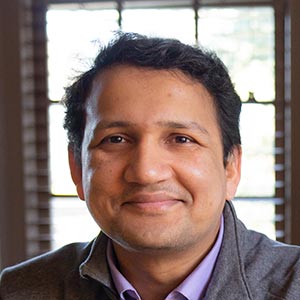
Zia Haque, Ph.D.
Director, The Baker Institute for Peace and Conflict Studies; Assistant Professor of Peace and Conflict Studies and Peace and Conflict Studies Chair, Juniata College
-

Kaitlyn Granger
Event Manager; Program Coordinator, The Baker Institute for Peace and Conflict Studies
-
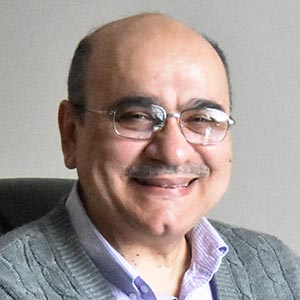
Amr Abdalla, Ph.D.
Planning Committee; Fellow, The Baker Institute for Peace and Conflict Studies
-
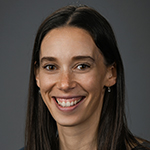
Ursula Williams, Ph.D.
Andrew W. Mellon Foundation Grant Co-Principle Investigator; Associate Professor of Chemistry Chemistry & Biochemistry Department Chair, Juniata College
Explore our Annual Reports & Videos:
- Baker Institute YouTube Channel
- 2022-2023 Baker Institute Annual Report
- 2021-2022 Baker Institute Annual Report
- 2020-2021 Baker Institute Annual Report
- 2019-2020 Baker Institute Annual Report
 skip to content
skip to content




